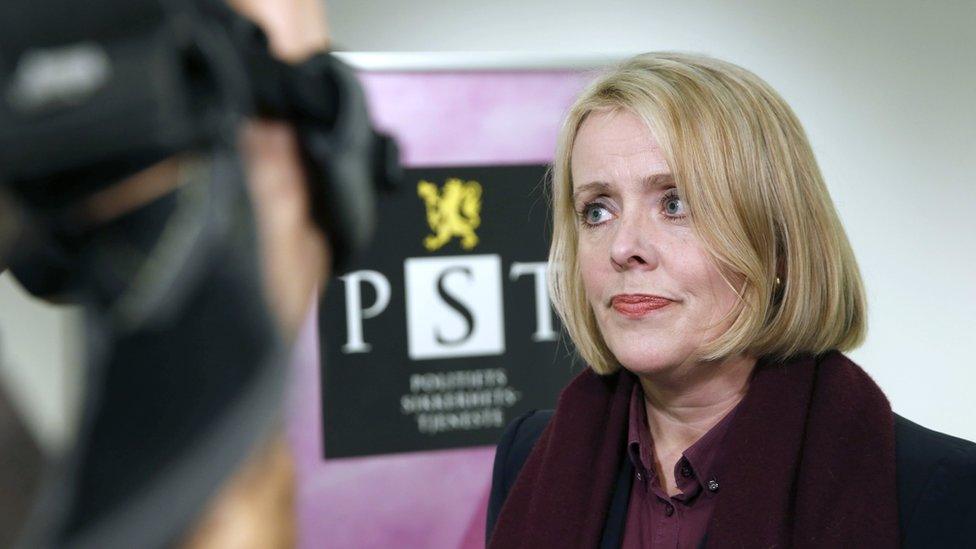Norway institutions 'targeted by Russia-linked hackers'
- Published

Norwegian deputies have been warned to take special caution with their electronic communications
Several institutions in Norway have been targeted by hackers believed to be linked to Russia, the security service (PST) has warned.
The Labour Party, defence and foreign ministries and the security service itself were among those hit, it said.
On Friday Norway announced it had chosen Germany's Thyssenkrupp (TKMS) to deliver four submarines to its navy, part of a wider military upgrade.
It comes amid tensions between Norway and Russia, which share a border.
On Wednesday, Norway summoned the Russian ambassador to complain after two Norwegian members of parliament were refused visas to travel to Russia.
It said Moscow had blocked the visas in response to Norwegian sanctions against Russia, imposed after it annexed Crimea from Ukraine in 2014, and called the move "unjustifiable".
The opposition Labour parliamentarians had been invited by Russia's upper house, the Federation Council, Norway's foreign ministry said according to Reuters news agency.
Has the Kremlin been meddling with its Arctic friends?
Ukraine crisis spells Arctic freeze in Russia-Norway ties
On Wednesday, the PST warned the Labour Party parliamentary group about the attempted hack in the second half of last year.
"We were informed by the PST that Labour's parliamentary group was subjected to an attempted digital attack by a group that the PST ties to foreign intelligence," Labour spokeswoman Camilla Ryste said.
The news prompted a warning to deputies to take special care in their handling of electronic communications.
On Friday, PST officials told Norwegian media that nine email accounts had been targeted in the Labour Party and other institutions.
They said the hacker group had been identified as APT 29, also known as Cozy Bear - with connections to the Russian security service FSB. The group has been linked to the attack on the Democratic National Committee (DNC) during the US election campaign.

Russian intelligence activities pose a greater threat than before, says PST security service chief Marie Benedicte Bjornland
Earlier this week, the PST released an annual assessment warning of a greater threat from Russian intelligence.
"Intelligence pressure from foreign states, especially from the Russian side, has been high and stable over the years," PST head Marie Benedicte Bjornland said, according to The Local Norwegian news site, external. "The intelligence activities of Russia in particular have the potential to be more dangerous now than before."
But the Russian embassy's Facebook page referred to the report as a "witch-hunt" which sought to return to "the times of the Cold War".
Last October, a Russian naval fleet including an aircraft carrier sailed past Norway and other Nato nations on its way to Syria.
Later the same month, Norway announced a break with peacetime tradition when it said it would allow more than 300 US troops to be stationed on its soil for a trial period in 2017.